 By Chris McCusker, Ph.D.
By Chris McCusker, Ph.D.
TLG Senior Consultant
Harvard psychologist Steven Pinker once pointed out a basic maxim in psychology which is that “we can choose the way we think.” With that in mind, here are some suggestions for keeping self-talk positive so we can be more productive and happier at work.
Many of us have heard the story of the Native American Chief who explains to his grandson the story of the fight between two wolves that live inside us. The one we feed will win the battle. These days I think about that story in the context of positive and negative energy wolves (rather than good versus bad ones).
Obviously, the “negative energy wolf” has gained a significant amount of weight in recent times. It seems to be fed constantly. The “positive energy wolf,” however, is looking a bit thin. It is hungry. How can we feed it in our workplaces? Would it make a difference?
Try Talking Out Loud
If you are experiencing negative self-talk, you might consider an experiment in talking out loud. Organizational scholar Karl Weick once wrote, “How do I know what I think until I hear what I say?”
Talking out loud may result in more awareness and discipline. Research shows that our inner thoughts tend to be words, short phrases and sentence fragments. But when we talk aloud, we use more complete sentences and have more mental discipline. Ulrich Boser in an HBR article in 2017 wrote about self-talking out loud. He drew attention to research that shows talking out loud enhances learning. Talking out loud helps us think about our thinking. We are more likely to ask “why” and make connections. He argues there is more self-explaining happening when we talk out loud.
Do a Gratitude Exercise
Gratitude has been shown in many studies to improve mental and physical health. You will feel better. There is long debate about what comes first – feelings or thoughts? There is evidence that the answer can be both. But much like the maxim “we can choose the way we think” there is also truth in the idea that we can choose the way we feel. Choose gratitude, feel positive and elevate your self-talk.
Perfectionism is the Mother of Negative Self-Talk
I remember the 1976 Olympics in Montreal where 14-year-old Romanian Nadia Comaneci scored a perfect 10 for the first time in gymnastics. They were unable to show the 10 on the scoreboard because it only went to 9.9. She ended up scoring 7 perfects 10s, which is still a record today.
Perfection exists. It is difficult and rare. It is an important standard of excellence. And doesn’t it feel great when it is achieved? I am strongly in favor of striving for perfection when possible. It must be on the table when we evaluate ourselves. I want to “nail that landing” daily!
The problem comes in when perfection is our only standard. If we use only perfection to judge ourselves, then we are going create a lot of negative self-talk because it is rarely achieved. We fall short of perfection time and time again and we must be honest with ourselves about it: “I fell short of perfection…again.” And saying it out loud only makes it feel worse.
Using Multiple Standards
Can we be perfectionists yet smuggle in some positive self-talk? I think the answer lies in using multiple standards. Perfection should be on the table but there are other standards that should be as well. Here are some examples that can be applied to work tasks: Did I complete the task? Did I learn something in the process? Did I improve the status quo? Finally, did I meet the expectations of my customers? Supervisor? Coworkers? Did I develop or improve working relationships while doing that task? Did I do better than I did previously? Am I doing better than the person who has my role in a competing company?
In their book, Decent People Decent Company, Bob and Lyn Turknett share a quote from Arthur Ashe: “Start where you are, use what you have, do what you can.” To this day, that quote helps remind me to avoid being an unhealthy perfectionist.
Negative self-talk is something that we all do. The ideas above have helped me avoid too much negative self-talk when it comes to my work. I recommend: more awareness of how we are thinking (by talking out loud), elevating our feelings (by focusing on gratitude) and not being too self-critical (by using multiple standards for evaluating ourselves).

